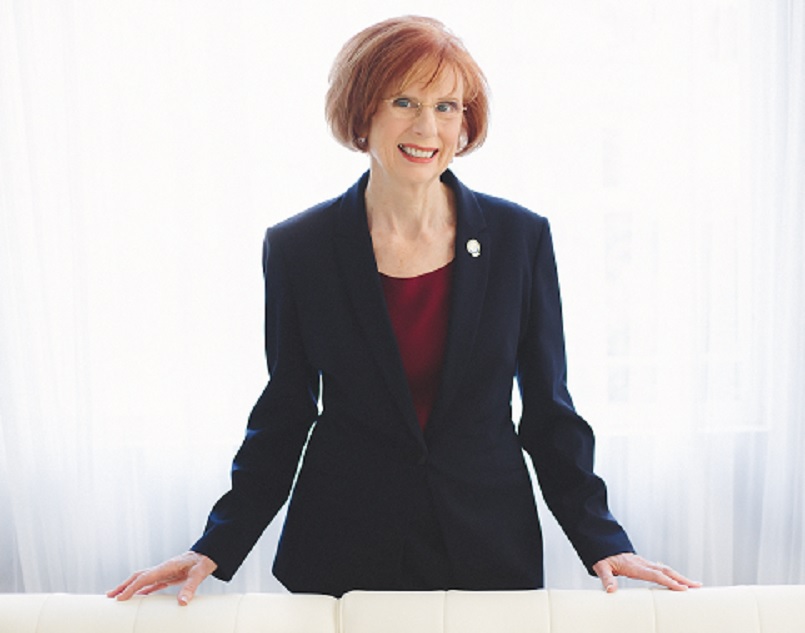The key to living the life and doing the work you love is living true to your essential nature.
Welcome
Hello! I’m Fran Fisher, a professional life coach. I am a Master Certified Coach (MCC), certified by the International Coach Federation (ICF), with more than 30 years of serving clients, teams, and organizations through customized coaching programs.
Welcome to my website. I invite you to take your time and explore each page to see what I offer to clients and to coaching professionals.
Who I Am
As a brief overview, let me introduce myself by giving you an idea of WHO I AM. I believe we are each called to do our life’s best work as an expression of who we are at our very core —our ESSENCE. Each of us is different, with unique gifts to offer. So, my coaching centers upon empowering clients to discover and embrace their essence and the core values that are expressions of that essence. Uncovering and articulating our life purpose through understanding our essence enables us to become more fully expressed, able to lead a life that is more fulfilling and satisfying. This is what I call living from the “inside-out. ” Working together, you and I co-create your coaching program using time-tested methods that I have developed for my clients. See more below…
Looking for a Coach?
If you are looking for a coach and are interested in learning more about the coaching profession, you’ll get a good idea of what professional coaching is about and what it offers clients who want to work with a life coach. You’ll also see references made to the standards and certifications training required by the International Coach Federation (ICF) and why that’s important to the profession of coaching.
Coach Resources
If you are a professional coach and are here to learn more about my programs for ACCs, PCCs, and MCCs, you’ll find my site a rich resource to support your journey through ICF credentialing and beyond. As coaches, we never stop growing, so my programs are designed as flexible resources that can be used when you want to refresh your coaching skills or expand your mastery through revisiting what you know and taking that to a deeper level.ForPlease also refer to the new section below about Mentor Coaches.
If you are looking for a professional coach mentor, please see my two new Mentor Coach programs listed below and the associated Mentor Coach Directories. I am pleased to host these two directories and can recommend the coaches listed because they have trained with me. As colleagues, we are aligned in our perspectives about mentoring and our collective commentment to empowering other coaches seeking advancement and mastery.
I’m always pleased to connect on a personal level with those who are interested in coaching, so please use my contact information here to reach out, ask questions, and explore the possibilities!
Vision, Mission, Goal
MY VISION is to empower leaders in fulfilling a vision of a transformed world, where everyone is enjoying a rich and fulfilling life, living true to their values, unique vision, and purpose.
MY MISSION is to provide masterful coaching services that enable leaders to manifest powerful, fulfilling visions that transform their lives and their contributions to humanity.
MY GOAL is to support and empower each client to embrace their true essence and to embody and enact their core values on a daily basis—to be who they are meant to be and live their best life.
Fran’s Approach to Coaching
 The world needs your light, now more than ever! Discover my unique time-proven, inside-out process that serves as the foundation for your growth and your unique expression of life.
The world needs your light, now more than ever! Discover my unique time-proven, inside-out process that serves as the foundation for your growth and your unique expression of life.
- Do you want to gain greater personal and professional mastery?
- Are you open to seeing the greatness in yourself and others, and do you believe this is the key to being an empowering leader?
- Are you called to make a greater or more meaningful contribution in the world?
- Are you motivated to doing the personal work required: physically, mentally, emotionally, and spiritually?
- Is the certificate on your wall secondary to achieving your learning and growth?
As a Master Coach, I guide clients through a process that I developed to help each person embrace their essential nature so they can leverage their authentic power. For each person, this process brings something unique and beautiful from within that creates the foundation for a more fulfilling impact in the world. This time-proven process has been successfully enriching my clients’ lives for more than 30 years, and each journey is as unique, creative, empowering, and fulfilling as the individual who courageously embarks on this journey.
Living from the Inside-Out
Is it time to acknowledge that you want something more in your life…that you are missing something and don’t quite know what? What about that niggling feeling you’ve had for some time that says there’s more out there for you — Don’t you want to know what it is? Is now the time to honor your intuition and listen to that inner voice that says, “You may not know what’s missing, but there are ways to find out!”
The place to start is discovering—uncovering—your essential nature, identifying your core values, and then laying the groundwork for change. What can happen? You get to know WHO you truly are, WHAT you truly want, and HOW you can grow into that person with openness, curiosity, and vitality.
Coaching introduces you to your inner wisdom and your own power, and it’s worth your time and energy to explore the benefits and what they might mean for you! Coaching can guide you to discover your essential nature, your personal power, your passions, and the opening up to new opportunities, putting fun back into your day (oh, my!), and really living your best life. What better investment is there?
Uncover Your Essence
Uncovering your essence is the first and most vital step in your transformational process. It is like a beautiful sunrise in the morning. Your essential nature is your “true self.”
Who Am I?
Who am I? What is my Purpose? How do I live it? These are three questions humanity has been asking since the dawn of consciousness.
Unleash Your Possibilities
The more you take actions that are aligned with your VISION, purpose and values, the more you will experience a state of synchronicity, ease and flow.
What Questions Are You Living In?
Watch Fran’s four-minute video introducing her transformational point of view that will open your heart to new possibilities and your mind to empowering perspectives.
Connect to Your Own Brilliant Essential Nature
I invite you to explore my website and the programs and resources offered, check out my YouTube videos, and review how I work with clients to support their empowerment and growth. Be sure to sign up for my email list for updates and new coaching/mentoring programs, and please reach out to me personally with any questions you may have. You can contact me here.
I welcome your call or email so we can explore the breakthrough you are now ready to create!

New Mentor Coach Certificate Programs and Mentor Coach Directories
I am pleased to introduce two new Certified Mentor Coach programs that include professional directories as valuable resources for those of you looking for coaching mentors. Whether you’re advancing through the ICF credentialing levels or are eager to develop more advanced coaching skills, you’ve come to the right place to find a mentor to support your vision and your efforts and a collaborative of other master coaches offering support and inspiration.
I’m excited to share these new programs with you and proud to introduce these masterful certified coaches via their individual listings in the professional directories on my webite. These highly skilled mentor coaches can guide, support, and empower you on your own professional coaching journey. I think you’ll be inspired by the mastery that these mentor coaches have achieved and can share with you!
The Advanced Certified Mentor Coach Program and ACMC Directory
The Advanced Certified Mentor Coach program (ACMC) offers advanced mastery skills training in mentoring other coaches. You can find out more on the Advanced Certified Mentor Coach program page here (add link).
The ACMC Directory lists masterful coaches who have been certified through that training program, which was created specifically for coaches who have attained the ICF PCC or MCC level and want to share their knowledge and experience with other professional coaches through mentoring.
Wisdom Way Certified Mentor Coach Collaborative Program and Directory
The Wisdom Way Certified Mentor Coach (WWCMC) Collaborative is a community of peers — ICF MCC certified coach mentors who are passionate about continuous learning, personal growth, and making a transformational impact in the world of coaching and mentoring. This Collaborative is an intimate learning community that supports its members’ professional growth in consulting, coaching, mentoring, training, and more. Learn more about this dynamic peer group on the WWCMC program page.
WWCMC Directory (to be linked here) lists the Collaborative MCC coaches who have completed the Wisdom Way Coaching Mastery II program and are committed to supporting other coaches who are also seeking greater mastery through coaching and in their personal lives.



